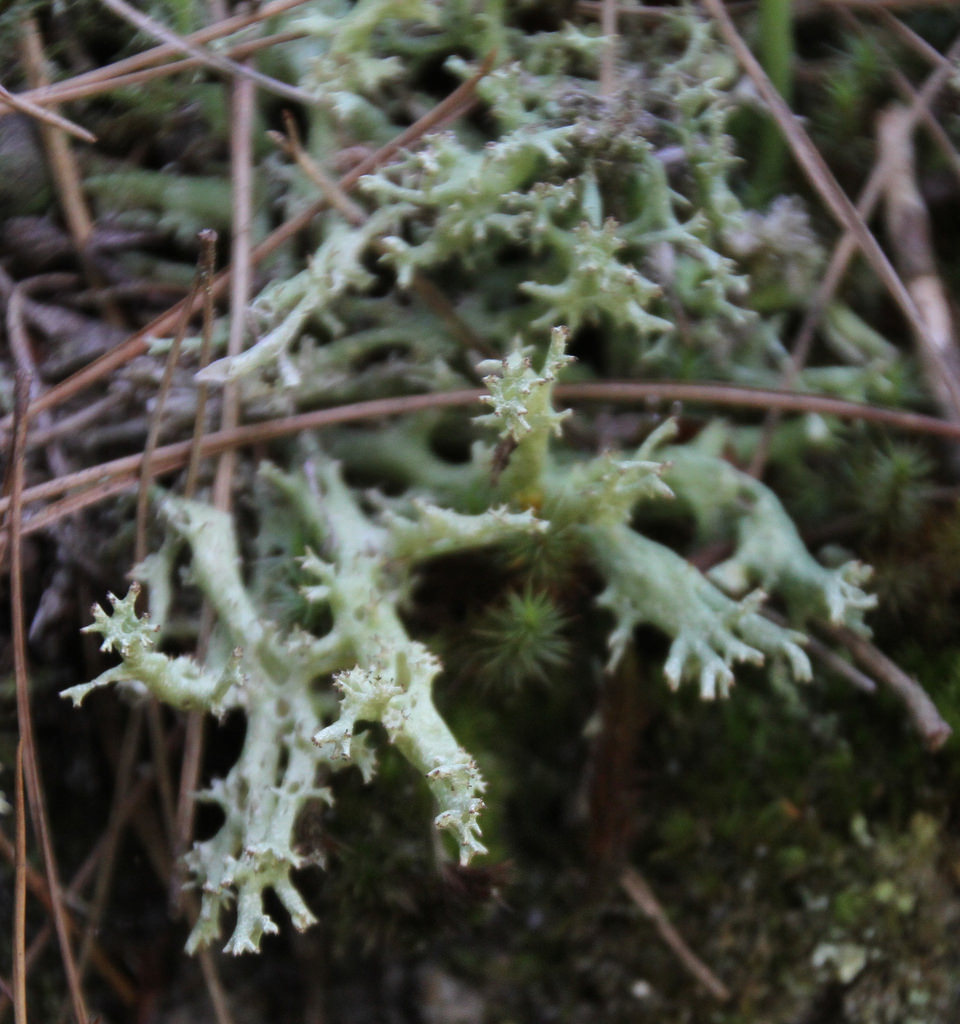Map Snapshot

0 Records
Seasonality Snapshot
No Records
Source: Wikipedia
| Cladonia boryi | |
|---|---|

| |
| Mature mass of Cladonia boryi, the fishnet lichen | |
| Scientific classification | |
| Domain: | Eukaryota |
| Kingdom: | Fungi |
| Division: | Ascomycota |
| Class: | Lecanoromycetes |
| Order: | Lecanorales |
| Family: | Cladoniaceae |
| Genus: | Cladonia |
| Species: | C. boryi
|
| Binomial name | |
| Cladonia boryi | |
Cladonia boryi, also commonly known as fishnet cladonia or fishnet lichen, is a species of lichen.[1][2] It is distinctive in the genus Cladonia because the stalks (podetia) are very wide, seemingly hollow, and often perforated, hence the colloquial name - the fishnet lichen. It is also known as Bory's cup lichen.
Description
[edit]Lichen grows into roundish masses up to 20 cm (7.9 in) or so in diameter; many masses may form a broad area on the ground. Podetia wider than most in Cladonia; the walls often being irregularly perforated. Podetia end in small coronets, tips of which are usually colored maroon.
Range
[edit]Mostly reported from North East United States of America GBIF, occasional records from other locations including Japan.
Habitat
[edit]Usually found on sand dunes, sand, or in forest glades.
Taxonomy
[edit]Originally described by Edward Tuckerman in 1847. Now classified in the section Unciales [3] Index Fungorum UUID: {5636B9BC-C79E-4041-87D6-3BC889939E0D}

References
[edit]- ^ "Fishnet Cladonia (Cladonia boryi)". iNaturalist. Retrieved 2021-12-04.
- ^ "Fishnet Cladonia (Cladonia boryi)". LichenPortal. Retrieved 2021-12-04.
- ^ Stenroos, S., Hyvönen, J., Myllys, L., Thell, A., and Ahti, T. 2002. Phylogeny of the genus Cladonia s.lat. (Cladoniaceae, Ascomycetes) inferred from molecular, morphological, and chemical data. Cladistics, 18, 237–278 doi:10.1006/clad.2002.020
